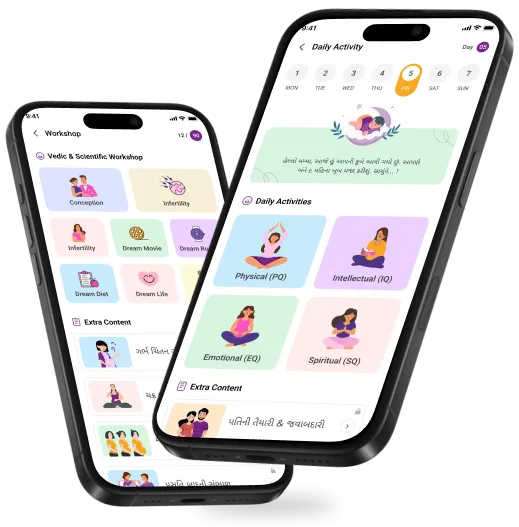Hey there! Have you ever wondered why some babies decide to come into the world earlier than expected? Let's dive into the world of premature delivery to understand the causes, risks, and how to care for these little fighters.
Imagine this: You're eagerly waiting to meet your little one, but suddenly, they decide to make an early appearance. What happens next? Let's explore the world of premature births together and learn how to support these tiny humans.
What is Premature Labor/Delivery?
What is Premature Labor? Premature labor, also known as preterm labor, happens when your body starts getting ready for birth earlier than expected. This can be risky for both you and your baby, so it's important to recognize the signs early on for preterm birth prevention.
Premature delivery is considered when a baby is born before 37 weeks of pregnancy. Normally, a pregnancy lasts about 40 weeks, so when a baby arrives early, it can be a surprise for everyone.
A premature baby is born before the full term of pregnancy. If a baby is born around the 35th week of pregnancy, it may not have serious issues, but some babies might face breathing difficulties. However, if a baby is born before the 28th week of pregnancy, the chances of survival are very low, and even if the baby survives, there could be many physical complications or the baby may be disabled causing premature birth complications, making them vulnerable in the future.
Picture this: A baby arriving before they are fully ready to face the world. Premature birth, or preterm birth, occurs when a baby is born before completing 37 weeks in the womb. It's like a shocking surprise party where the guest of honor shows up early!

Why Do Babies Come Early?
Visualize this: Sometimes, babies decide to come early due to various reasons. Health issues in the mom, infections in there can lead to premature birth. It's like a little adventure that starts sooner than expected. Causes of premature birth can include the early rupture of the amniotic sac, the presence of twins in the uterus, a weak cervix, bacterial infections in the vagina, excessive bleeding during pregnancy, abnormalities in the uterus, exposure to domestic violence, smoking or alcohol consumption during pregnancy, physical strain on the pregnant woman, and low or high maternal weight, which increases the risk of premature birth and other complications.
Signs and symptoms of premature birth include the baby having a small body with a large head, visible veins on the baby's face due to lack of fat, the baby being covered in body hair, lower body temperature after birth due to less fat, and difficulty in breathing or oxygen intake etc..
Causes of Premature Delivery
Challenges for Early Arrivals:
Imagine this: Tiny babies born too soon may face some hurdles as their bodies are still growing. Breathing difficulties, staying warm, or learning to feed can be delayed for these little ones. But with love and care, they can overcome these challenges.
There are many other reasons why a baby might decide to make an early entrance. Some common premature birth causes include:
- Health conditions in the mother, like high blood pressure or diabetes
- Infections during pregnancy
- Multiple pregnancies (twins, triplets, etc.)
- Problems with the uterus or cervix
- Stress or trauma etc.

Risks for Premature Babies:
Babies born too soon might face some challenges with premature delivery risk factors because their bodies are not fully developed. Some risks for premature babies include:
- Breathing problems
- Trouble staying warm
- Feeding difficulties
- Infections
- Developmental delays
Caring for Premature Babies:
Imagine This: Holding your baby close, skin-to-skin, can be like giving them a warm hug. Breastfeeding provides them with superpowers to grow strong and healthy. And with the help of medical experts, these tiny heroes can receive the premature baby care they need to thrive.
Taking care of a premature baby requires extra love and attention. Here are some ways to help these tiny miracles thrive:
- Kangaroo care: Holding your baby skin-to-skin can help with bonding and warmth.
- Breastfeeding: Breast milk is like a superfood for premature babies, providing essential nutrients and antibodies.
- Medical support: Premature babies might need help breathing or eating, so doctors and nurses will be there to provide the best care. Therefore, the most important things here are choosing a doctor and following them to the exact.

Diagnosis of Premature Birth
To diagnose premature birth, doctors may conduct various tests like urine tests, vaginal swabs, blood tests, and amniotic fluid tests. Steroids may be given to help develop the baby's lungs if premature birth is diagnosed.
In the Neonatal Intensive Care Unit (NICU), the baby is kept in an incubator to maintain a healthy body temperature, sensors are used to monitor vital signs, and feeding tubes are used to provide milk or fluids until the baby can feed on their own. Treatment may include medications to help the baby's lungs function, control heart rate with aerosolized mist and IV, antibiotics for infections, diuretics for urinary issues, eye drops for preventing retinopathy, and medications for heart conditions.
After the baby's condition stabilizes and they are healthy with normal body temperature, breathing, and weight gain, the doctor may allow the baby to go home. It's important to follow medical advice and precautions when taking care of a premature baby at home.
Precautions to reduce the risk of premature birth include using progesterone to prevent a history of premature birth and cervical cerclage surgery to help support the uterus.
{{cool-component}}
Signs of Premature Labor
Here are some symptoms of premature labor to look for:
Contractions: If you start feeling regular contractions that cause pain or discomfort, especially if they're coming every 10 minutes or more often, it could be a sign of premature labor. It is an early sign of premature delivery.
Backache: A persistent lower backache, especially if it's accompanied by cramping, can be a warning sign.
Pelvic Pressure: Feeling increased pressure in your pelvic area could indicate that your baby is moving down too soon.
Vaginal Discharge: Any unusual discharge, especially if it's watery, bloody, or mucus-like, should not be ignored.
Abdominal Cramps: Strong cramps that feel like your period might be a sign of premature labor.

What to Do if You Suspect Premature Labor?
Call Your Doctor: Don't hesitate to contact your healthcare provider if you experience any of these signs.
Stay Hydrated: Dehydration can sometimes trigger contractions, so make sure you're drinking enough water.
Rest: Take it easy and avoid strenuous activities.
Monitor Your Symptoms: Keep track of any changes and report them to your doctor.
Being aware of the signs of premature labor is essential for a safe and healthy pregnancy. If you notice any of these symptoms, don't hesitate to reach out to your healthcare provider. Remember, it's always better to be safe than sorry when it comes to you and your baby's well-being.
Natural Remedies for Premature Labor
If you're looking for natural ways to help prevent premature labor, here are some simple remedies you can try:
Stay Active: Gentle exercises like walking or prenatal yoga can help keep your body strong and may reduce the risk of premature labor.
Stay Hydrated: As per discussed before, drinking plenty of water throughout the day can help keep your body functioning well and may help prevent preterm labor.
Relaxation Techniques: Practicing deep breathing, meditation, or taking warm baths can help reduce stress and potentially lower the risk of premature labor.

Healthy Diet: Eating a balanced diet rich in fruits, vegetables, whole grains, and lean proteins can provide essential nutrients for a healthy and safe pregnancy.
Pelvic Exercises: Doing pelvic tilts or Kegel exercises can help strengthen your pelvic muscles and may support a healthy pregnancy.
Remember, it's essential to consult with your healthcare provider before trying any natural remedies to ensure they are safe for you and your baby. Take care of yourself and reach out for support if needed.
{{cool-component-1}}
How to Avoid Premature Labor
If you want to keep your baby safe, here are some simple ways to prevent premature delivery. Tips for Reducing Premature Birth Risks:
Healthy Lifestyle: Yes, practice lifestyle changes to prevent preterm birth. Eating well, staying active, and steering clear of harmful habits like smoking and drinking can help keep your pregnancy on track.
Regular Prenatal Care: Seeing your doctor regularly for check-ups and prenatal care essentials can catch any health problems early and keep you and your baby healthy.

Stress Management: Finding ways to relax, like taking gentle walks, practicing deep breathing, or enjoying soothing music, can help reduce stress and lower the risk of premature labor.
Stay Hydrated: Drinking enough water throughout the day is important for your body and can help prevent preterm labor.
Know the Signs: Being aware of the signs of premature labor, such as contractions, backache, pelvic pressure, vaginal discharge, and abdominal cramps, can help you act promptly if something doesn't feel right.
Conclusion
While premature delivery can be unexpected and challenging, with the right premature baby care and support, premature babies can grow up to be healthy and strong. Remember, every baby is a little miracle, no matter when they decide to arrive. Get maternal health tips during pregnancy and healthy pregnancy advice through our DreamChild Garbh Sanskar App.
Picture a world where every premature baby is a little hero, fighting their own battles with courage and strength. By understanding premature births and offering support, we can help these tiny humans grow. With love, care, and a sprinkle of magic, we can make a difference in the lives of these special little ones.
Disclaimer: This blog is correct as per the writer's knowledge. This is not medical guidance. Follow as you are responsible for.












.webp)

.webp)





